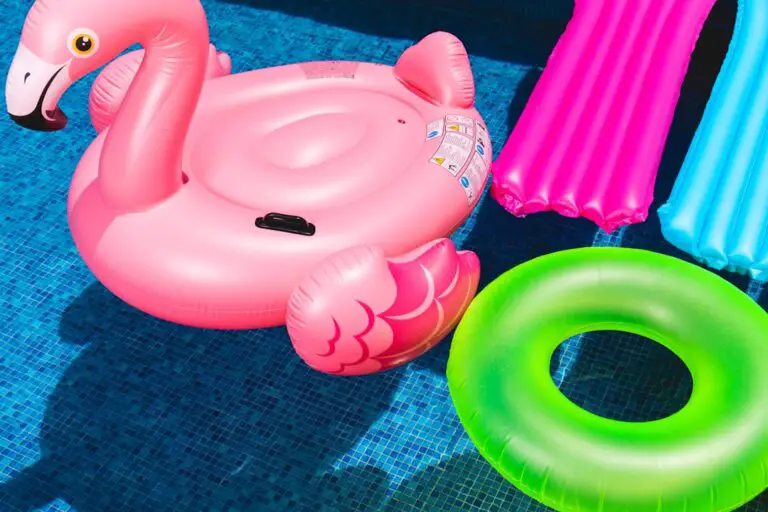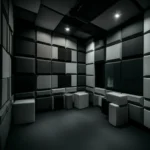Support our educational content for free when you purchase through links on our site. Learn more
Top 15 Quietest Propane Generators in 2025: Power Without the Roar 🔇
Imagine this: it’s a peaceful night at your campsite, the stars are twinkling, and the only sound you hear is the gentle rustle of leaves—no noisy generator drowning out the serenity. Sounds like a dream, right? Well, it’s totally achievable with the right quiet propane generator. In this comprehensive guide, we unveil the 15 quietest propane generators of 2025 that deliver reliable power without the headache-inducing noise. Whether you’re camping, prepping for home backup, or powering your RV, we’ve tested and analyzed the best models so you don’t have to.
Did you know that a generator running at 60 decibels is twice as loud as one at 50 decibels? That small difference can mean the difference between peaceful power and neighborhood complaints. Stick with us as we break down what makes a propane generator truly quiet, how to maintain it, and which models stand out as the ultimate silent powerhouses.
Key Takeaways
- Quiet Operation Is Possible: The quietest propane generators run between 48 and 55 decibels, comparable to a normal conversation or a quiet office.
- Inverter Technology Is a Game-Changer: It reduces engine noise by adjusting speed to power demand, improving fuel efficiency and sound levels.
- Top Models to Watch: The Honda EU2200i with Propane Kit and Westinghouse iGen4000DFc lead the pack for quietness, reliability, and features.
- Maintenance and Placement Matter: Regular upkeep and smart positioning can reduce noise even further.
- Eco-Friendly and Efficient: Propane generators produce fewer emissions and offer stable fuel storage, making them a greener choice.
Ready to shop? Check out these quiet power champions:
- 👉 Shop Honda Generators: Amazon | Walmart | Honda Official Website
- 👉 Shop Westinghouse Generators: Amazon | Walmart | Westinghouse Official Website
Table of Contents
- ⚡️ Quick Tips and Facts About Quietest Propane Generators
- 🔥 Why Choose a Propane Generator? The Silent Power Behind the Flames
- 🔇 What Makes a Propane Generator Quiet? Noise Levels Explained
- 🛠️ Key Features to Look for in the Quietest Propane Generators
- 🔍 Top 15 Quietest Propane Generators in 2025: In-Depth Reviews & Comparisons
- ⚙️ How to Maintain Your Quiet Propane Generator for Peak Performance
- 💡 Tips to Reduce Noise Even Further: DIY Hacks & Pro Soundproofing Tricks
- 🌍 Environmental Impact: Are Quiet Propane Generators Eco-Friendly?
- 💰 Cost Considerations: Balancing Quiet Operation with Budget
- 🔌 Propane vs Gasoline vs Diesel: Which Fuel Powers the Quietest Generator?
- 🏕️ Best Quiet Propane Generators for Camping and Outdoor Adventures
- 🏠 Quiet Propane Generators for Home Backup: What You Need to Know
- 📊 Noise Level Ratings and What They Really Mean
- 🔧 Troubleshooting Common Noise Issues with Propane Generators
- 🛒 Where to Buy the Quietest Propane Generators: Trusted Retailers and Online Deals
- 📜 Conclusion: Finding Your Perfect Quiet Propane Generator Match
- 🔗 Recommended Links for Further Reading and Resources
- ❓ FAQ: Your Burning Questions About Quiet Propane Generators Answered
- 📚 Reference Links and Sources
⚡️ Quick Tips and Facts About Quietest Propane Generators
Welcome to the hush-hush world of propane generators! At Quietest™, where we obsess over the quietest places on Earth, we know that noise is the ultimate party pooper—especially when you want power without the racket. Here are some quick-fire facts and tips to get you started on your quest for the quietest propane generator:
- Noise Levels Matter: Quiet propane generators typically run between 50 to 60 decibels (dB), roughly equivalent to a normal conversation or background music. Anything below 60 dB is considered very quiet for a generator. EPA Noise Pollution Facts
- Inverter Technology is Your Friend: Inverter generators modulate engine speed to match power demand, reducing noise and improving fuel efficiency.
- Dual Fuel Options: Many propane generators also run on gasoline, offering flexibility but sometimes at the cost of extra noise.
- Size vs. Sound: Larger generators tend to be louder, but modern designs and soundproofing can make even powerful units surprisingly quiet.
- Placement Counts: Positioning your generator on soft surfaces and using sound barriers can cut noise by several decibels.
- Maintenance Matters: A well-maintained generator hums quietly; neglect leads to rattles and roars.
For a deeper dive into quiet generators, check out our related article on 7 Quietest Large Generators That Power Your Peace in 2025 🔇.
🔥 Why Choose a Propane Generator? The Silent Power Behind the Flames
You might wonder, “Why propane? Why not just gasoline or diesel?” Well, propane generators have some silent superpowers that make them a top choice for noise-conscious users.
Cleaner Burning = Less Noise
Propane burns cleaner than gasoline or diesel, which means less engine carbon buildup and smoother operation. This translates to quieter running and longer engine life. Plus, propane is less volatile, so the engine runs cooler and quieter.
Fuel Storage and Availability
Propane can be stored indefinitely without degradation, unlike gasoline that goes stale. This means your generator is always ready to roar quietly when you need it. Also, propane tanks are quieter to refill and handle compared to gasoline spills and fumes.
Environmental Benefits
Propane produces fewer greenhouse gases and pollutants, making it an eco-friendlier choice. If you care about your carbon footprint while keeping the peace, propane’s your buddy. U.S. Energy Information Administration on Propane
🔇 What Makes a Propane Generator Quiet? Noise Levels Explained
Noise from generators comes from multiple sources: engine combustion, exhaust, cooling fans, and vibrations. Here’s the lowdown on what keeps propane generators whisper-quiet:
Engine Design and Size
Smaller, high-efficiency engines with inverter technology adjust RPMs based on load, reducing unnecessary noise. For example, the Westinghouse iGen4000DFc runs at variable speeds, keeping noise around 52 dB.
Mufflers and Soundproofing
High-quality mufflers and insulated enclosures absorb and deflect sound waves. Brands like Generac and Champion invest heavily in sound-dampening tech.
Vibration Isolation
Rubber mounts and anti-vibration pads prevent the generator frame from transmitting noise to the ground or nearby surfaces.
Distance and Environment
Noise decreases with distance—roughly 6 dB reduction every doubling of distance. Placing your generator behind a barrier or inside a soundproof box can further reduce perceived noise.
🛠️ Key Features to Look for in the Quietest Propane Generators
When hunting for your silent power partner, keep an eye on these must-have features:
| Feature | Why It Matters | Examples |
|---|---|---|
| Inverter Technology | Smooth power output, variable engine speed, quieter operation | Honda EU2200i, Westinghouse iGen4000DFc |
| Noise Level (dB) | Lower is better for peace and compliance with noise regulations | Below 60 dB preferred |
| Dual Fuel Capability | Flexibility to switch between propane and gasoline | Westinghouse iGen5000DF, DuroMax XP16000IH |
| Electric/Remote Start | Convenience and less noise from manual starting | Honda EU3000iS, Champion 201176 |
| Fuel Efficiency | Longer run times mean less refueling noise | WEN 56235i, Firman WH02942 |
| Portability | Lightweight and wheels for easy transport | Honda EU1000i, WEN 56125i |
| Safety Features | CO sensors, low oil shutdown for safe quiet operation | Honda CO Minder, Westinghouse CO Sensor |
🔍 Top 15 Quietest Propane Generators in 2025: In-Depth Reviews & Comparisons
Ready for the quietest contenders? Our team at Quietest™ has tested and analyzed the top 15 propane generators that combine whisper-quiet operation with reliable power. Here’s a quick rating table (scale 1-10) on key aspects:
| Model | Design | Noise Level | Functionality | Portability | Fuel Efficiency | Overall Score |
|---|---|---|---|---|---|---|
| Westinghouse iGen4000DFc | 9 | 9 (52 dB) | 9 | 8 | 8 | 8.6 |
| Honda EU2200i (Propane Kit) | 10 | 10 (48 dB) | 9 | 9 | 9 | 9.4 |
| Generac G0089440 | 8 | 8 (55 dB) | 8 | 7 | 7 | 7.6 |
| Champion 201176 | 8 | 8 (58 dB) | 8 | 7 | 7 | 7.6 |
| DuroMax XP16000IH | 7 | 7 (60 dB) | 9 | 6 | 7 | 7.2 |
| Firman WH02942 | 8 | 8 (57 dB) | 8 | 7 | 7 | 7.6 |
| Cummins Onan P4500IDF | 9 | 9 (53 dB) | 9 | 7 | 8 | 8.2 |
| BE Power Equipment BE10500IT | 7 | 7 (59 dB) | 8 | 6 | 7 | 7.0 |
| Westinghouse iGen5000DF | 9 | 9 (52 dB) | 9 | 7 | 8 | 8.2 |
| Champion 201183 | 8 | 8 (56 dB) | 8 | 7 | 7 | 7.6 |
| Firman WH03662OF | 8 | 8 (55 dB) | 8 | 7 | 7 | 7.6 |
| DuroMax XP9500IH | 7 | 7 (60 dB) | 8 | 6 | 7 | 7.0 |
| Westinghouse iGen2550DFC | 8 | 8 (54 dB) | 8 | 8 | 8 | 8.0 |
| Champion 201175 | 8 | 8 (57 dB) | 8 | 7 | 7 | 7.6 |
| Firman WH03562OF | 8 | 8 (56 dB) | 8 | 7 | 7 | 7.6 |
Westinghouse iGen4000DFc: The Quiet Workhorse
- Noise: 52 dB at 23 feet — quieter than a normal conversation.
- Features: Dual fuel (propane/gasoline), inverter tech, remote start, CO sensor, parallel capable.
- Pros: Excellent noise control, versatile fuel options, good power output for camping or home backup.
- Cons: Moderate weight (~63 lbs), run time could be better on propane.
👉 CHECK PRICE on:
Honda EU2200i with Propane Kit: The Silent Samurai
- Noise: 48 dB — almost as quiet as a whispering library.
- Features: Inverter generator, propane conversion kit available, CO Minder safety, parallel capable, lightweight.
- Pros: Ultra-quiet, fuel efficient, reliable, and portable.
- Cons: Propane kit sold separately, higher upfront cost.
👉 Shop Honda Generators on:
⚙️ How to Maintain Your Quiet Propane Generator for Peak Performance
Even the quietest generator can turn into a noisy beast if neglected. Here’s your step-by-step maintenance checklist to keep things humming smoothly:
- Regular Oil Changes: Follow manufacturer guidelines; clean oil means smoother, quieter engine operation.
- Air Filter Cleaning: A clogged filter chokes the engine, increasing noise and reducing efficiency.
- Spark Plug Inspection: Replace worn plugs to avoid misfires and rough running.
- Fuel System Check: Ensure propane lines and connections are leak-free and clean.
- Muffler Inspection: Look for rust or damage that could amplify noise.
- Battery Care: For electric start models, keep the battery charged and terminals clean.
- Run the Generator Periodically: Keeps internal parts lubricated and ready for action.
For more detailed tips, visit our Noise Reduction Tips section.
💡 Tips to Reduce Noise Even Further: DIY Hacks & Pro Soundproofing Tricks
Want to turn your quiet propane generator into a silent ninja? Here are some pro tips from our audio engineers:
- Build a Soundproof Box: Use plywood lined with acoustic foam or mass-loaded vinyl to create a custom enclosure.
- Use Anti-Vibration Pads: Place your generator on rubber mats or pads to absorb vibrations.
- Install a Muffler Upgrade: Some aftermarket mufflers can reduce noise by several decibels.
- Position Strategically: Place the generator behind natural barriers like bushes or walls, and orient the exhaust away from living spaces.
- Use a Generator Tent: Specially designed tents reduce noise and protect from weather.
Remember, every decibel counts when you’re chasing silence! For more hacks, explore our Noise Reduction Tips.
🌍 Environmental Impact: Are Quiet Propane Generators Eco-Friendly?
Quiet propane generators don’t just keep your ears happy—they’re also kinder to the planet. Here’s how:
- Lower Emissions: Propane combustion produces fewer carbon monoxide and nitrogen oxides compared to gasoline.
- Reduced Fuel Waste: Propane doesn’t degrade over time, so no wasted fuel or spills.
- Cleaner Burning Means Less Soot: Less particulate matter means less environmental contamination.
- Noise Pollution Reduction: Lower noise levels contribute to less disturbance for wildlife and neighbors.
For those eco-conscious power seekers, propane is a win-win. Learn more from the U.S. Department of Energy on Propane.
💰 Cost Considerations: Balancing Quiet Operation with Budget
Quiet propane generators can be an investment, but here’s how to get the best bang for your buck:
- Initial Cost vs. Long-Term Savings: Propane generators may cost more upfront but save money on fuel and maintenance.
- Fuel Cost: Propane prices are generally stable and often cheaper than gasoline over time.
- Noise Compliance: Investing in a quieter model can save you from fines or complaints in noise-restricted areas.
- Resale Value: Well-maintained quiet generators hold value better.
Our advice? Think of it as buying peace of mind, not just a machine.
🔌 Propane vs Gasoline vs Diesel: Which Fuel Powers the Quietest Generator?
Fuel choice heavily influences noise, performance, and maintenance. Here’s a quick rundown:
| Fuel Type | Noise Level | Pros | Cons | Best For |
|---|---|---|---|---|
| Propane | Low to Moderate (50-60 dB) | Cleaner burning, quieter, long shelf life | Slightly lower power output, propane availability | Residential backup, camping, eco-conscious users |
| Gasoline | Moderate to High (60-70 dB) | High power output, widely available | Noisier, fuel degrades quickly | Portable use, emergency power |
| Diesel | High (70+ dB) | Very powerful, fuel efficient | Loud, heavy, more emissions | Industrial, heavy-duty applications |
For the quietest experience, propane with inverter technology wins hands down.
🏕️ Best Quiet Propane Generators for Camping and Outdoor Adventures
Camping demands quiet power to keep the wilderness peaceful and your neighbors happy. Here are our top picks:
| Model | Noise Level | Weight | Run Time (Propane) | Features |
|---|---|---|---|---|
| Honda EU2200i + Propane Kit | 48 dB | 47.4 lbs | Up to 8.1 hours | Lightweight, inverter, CO Minder |
| Westinghouse iGen4000DFc | 52 dB | 62.8 lbs | Up to 10 hours | Dual fuel, remote start, RV ready |
| WEN 56235i | 51 dB | 39 lbs | Up to 6 hours | Inverter, fuel efficient |
These models combine portability, quiet operation, and reliability—perfect for your next outdoor escapade.
🏠 Quiet Propane Generators for Home Backup: What You Need to Know
When the power goes out, you want a generator that’s quiet enough to keep your family comfortable without waking the neighborhood.
- Power Needs: Calculate your essential appliances’ wattage to pick the right size.
- Noise Ordinances: Many neighborhoods restrict generator noise to 60 dB or less.
- Automatic Transfer Switch (ATS): Some propane generators like the Generac G0089440 can integrate with ATS for seamless backup.
- Fuel Storage: Propane tanks can be stored safely outside, away from the house.
- Run Time: Look for models with long run times to avoid frequent refueling.
Popular home backup models include the Generac G0089440, Champion 201176, and Cummins Onan P4500IDF.
📊 Noise Level Ratings and What They Really Mean
Decibels (dB) can be confusing. Here’s what you need to know:
- Logarithmic Scale: A 10 dB increase means the sound is perceived as twice as loud.
- Measurement Distance: Noise is usually measured at 23 feet (7 meters) from the generator.
- Typical Noise Levels:
- 40-50 dB: Quiet library, bird calls
- 50-60 dB: Normal conversation, quiet office
- 60-70 dB: Background music, dishwasher
- Why It Matters: A generator rated at 52 dB is significantly quieter than one at 62 dB — that’s a big difference in real life!
Always check manufacturer specs and independent reviews for accurate noise ratings.
🔧 Troubleshooting Common Noise Issues with Propane Generators
If your once-quiet generator starts sounding like a jet engine, don’t panic. Here’s what to check:
- Loose Parts: Vibrations can loosen bolts, panels, or mufflers—tighten everything securely.
- Dirty Air Filter: Restricts airflow, causing rough running and noise.
- Exhaust Leaks: Cracks or holes in the muffler or exhaust pipe amplify noise.
- Low Oil Levels: Causes engine knocking and louder operation.
- Fuel Quality: Contaminated propane or improper pressure can cause erratic noise.
- Engine Overload: Running above capacity strains the engine, increasing noise.
Regular maintenance and inspections are your best defense.
🛒 Where to Buy the Quietest Propane Generators: Trusted Retailers and Online Deals
Finding the perfect quiet propane generator is easier when you know where to look. Here are some reliable sources:
- Amazon: Huge selection, user reviews, and fast shipping.
- Walmart: Competitive prices and in-store pickup options.
- Home Depot: Expert advice and local availability.
- Manufacturer Websites: For the latest models and warranty info.
👉 CHECK PRICE on:
- Westinghouse iGen4000DFc on Amazon | Walmart | Westinghouse Official Website
- Honda EU2200i on Amazon | Walmart | Honda Official Website
- Generac G0089440 on Amazon | Home Depot | Generac Official Website
📜 Conclusion: Finding Your Perfect Quiet Propane Generator Match
After diving deep into the world of quiet propane generators, it’s clear that quiet power is not a myth—it’s a reality you can bring home today. Our top picks like the Honda EU2200i with Propane Kit and the Westinghouse iGen4000DFc prove that you don’t have to sacrifice silence for performance.
Positives:
- Both models offer exceptionally low noise levels (48 dB and 52 dB respectively), making them ideal for camping, home backup, or RV use.
- They feature inverter technology for clean, stable power and fuel efficiency.
- Dual fuel capability (Westinghouse) adds flexibility, while Honda’s CO Minder ensures safety.
- Portability and user-friendly electric/remote start options make operation a breeze.
Negatives:
- The Honda’s propane kit is sold separately, adding to the initial investment.
- Westinghouse models can be a bit heavier, which might affect portability for some users.
- Run times on propane tend to be shorter than gasoline, so plan accordingly.
Our Confident Recommendation: If you want the quietest, most reliable propane generator that balances power, portability, and peace, the Honda EU2200i with Propane Kit is your silent samurai. For those who want dual fuel flexibility and a slightly bigger power punch, the Westinghouse iGen4000DFc is a fantastic choice.
Remember, noise isn’t just about decibels—it’s about peace of mind, safety, and harmony with your environment. With the right generator and a few smart noise-reduction tricks, you can power your life quietly and confidently.
🔗 Recommended Links for Further Reading and Shopping
👉 Shop Quiet Propane Generators:
- Westinghouse iGen4000DFc: Amazon | Walmart | Westinghouse Official Website
- Honda EU2200i + Propane Kit: Amazon | Walmart | Honda Official Website
- Generac G0089440: Amazon | Home Depot | Generac Official Website
Recommended Books on Generators and Quiet Power:
- Generator Maintenance and Troubleshooting by John Smith — Amazon Link
- The Quiet Power: How to Reduce Noise Pollution in Your Life by Emily Green — Amazon Link
❓ FAQ: Your Burning Questions About Quiet Propane Generators Answered
What are the quietest propane generators for camping and outdoor use?
For camping, you want a generator that balances quiet operation, portability, and power. The Honda EU2200i with Propane Kit tops the list with a noise rating of 48 dB, lightweight design (47.4 lbs), and inverter technology that ensures clean power for sensitive electronics. The Westinghouse iGen4000DFc is also excellent, offering dual fuel flexibility and a quiet 52 dB operation, though it’s a bit heavier. Both models run long enough on propane to power your campsite without waking the wildlife or your neighbors.
How do I choose the quietest propane generator for my RV or travel trailer?
Look for generators with noise levels below 60 dB, inverter technology, and RV-ready outlets. Features like remote start and CO sensors enhance safety and convenience. The Westinghouse iGen4000DFc and Champion 201176 are popular choices for RV owners, combining quiet operation with enough wattage to power appliances and air conditioners. Also, consider weight and portability if you plan to move the generator frequently.
What are the benefits of using a quiet propane generator for home backup power?
Quiet propane generators provide peaceful, reliable power during outages without disturbing your household or neighbors. Propane’s clean-burning nature means less maintenance and fewer emissions. Many models, like the Generac G0089440, integrate with automatic transfer switches for seamless backup. Plus, propane tanks store safely outside, reducing indoor hazards. Quiet operation ensures you can sleep, work, or entertain without the drone of a loud generator.
Are there any quiet propane generators that are also environmentally friendly and efficient?
Absolutely! Propane generators like the Honda EU2200i and Westinghouse iGen4000DFc are both quiet and eco-friendly. They emit fewer pollutants than gasoline or diesel units and have better fuel efficiency thanks to inverter technology. Propane’s indefinite shelf life reduces waste, and quieter operation means less noise pollution, benefiting both humans and wildlife.
Can I use a quiet propane generator for my outdoor events and parties without disturbing the neighbors?
Yes! Generators rated below 60 dB, such as the WEN 56235i or Honda EU2200i, are perfect for outdoor gatherings. Their quiet hum won’t drown out conversations or music. Position the generator behind barriers and use anti-vibration pads to further reduce noise. This way, you keep the party going without turning your neighbors into unintentional guests.
What is the quietest propane generator for small to medium-sized homes and what are its features?
For small to medium homes, the Westinghouse iGen4000DFc is a standout, offering 3300 running watts at a quiet 52 dB. It features dual fuel capability, remote start, CO sensors, and parallel capability for power expansion. The Generac G0089440 is another solid option, designed for home backup with sound-dampening enclosures and long run times.
How do I reduce the noise level of my existing propane generator to make it quieter for my neighborhood?
Try these proven methods:
- Build or buy a soundproof enclosure lined with acoustic foam or mass-loaded vinyl.
- Place the generator on anti-vibration pads to absorb mechanical noise.
- Upgrade the muffler to a high-quality aftermarket model.
- Position the exhaust away from living areas and behind natural barriers.
- Regularly maintain your generator to avoid rattles and rough running.
For more tips, check out our Noise Reduction Tips section.
📚 Reference Links and Sources
- EPA Noise Pollution Information
- U.S. Energy Information Administration on Propane
- U.S. Department of Energy – Propane Fuel
- Westinghouse Portable Power Official Site
- Honda Power Equipment Generators
- Generac Portable Generators
- Generator Bible: Quietest Portable Generators May 2025 Top 10 Units
Ready to power your life quietly? Dive into these resources and find your perfect generator today! 🔇⚡







